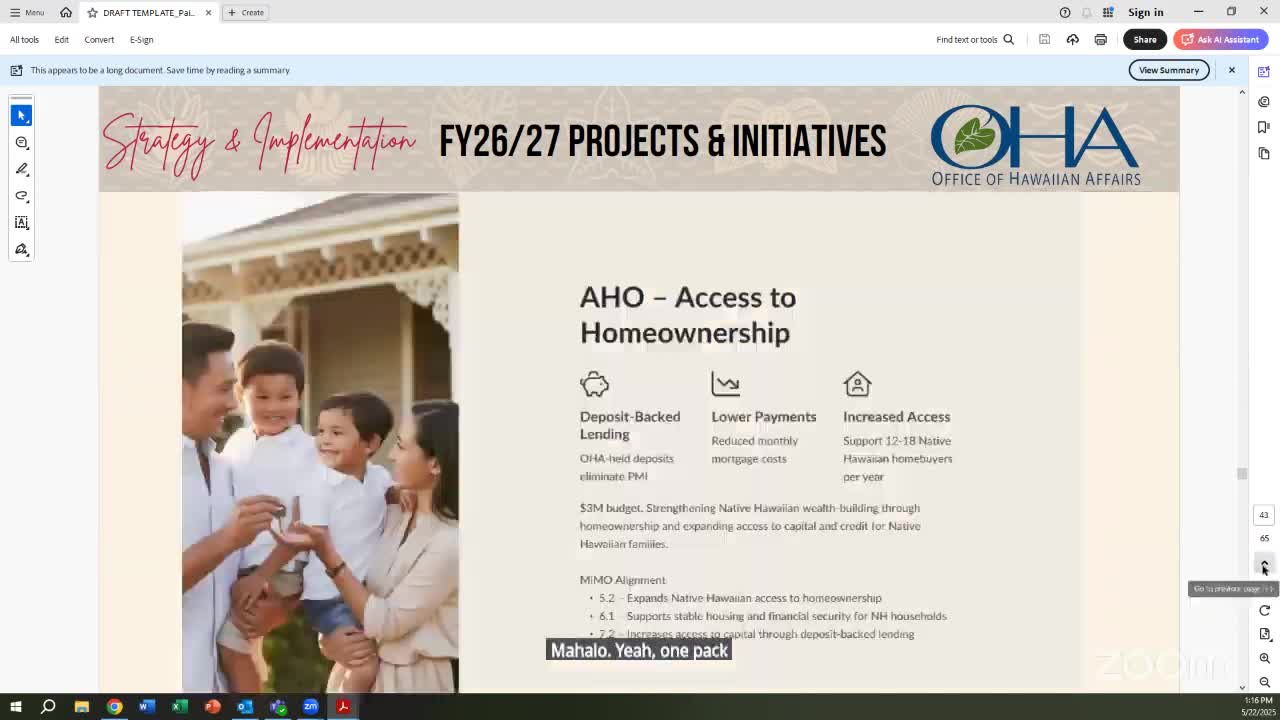Article not found
This article is no longer available. But don't worry—we've gathered other articles that discuss the same topic.
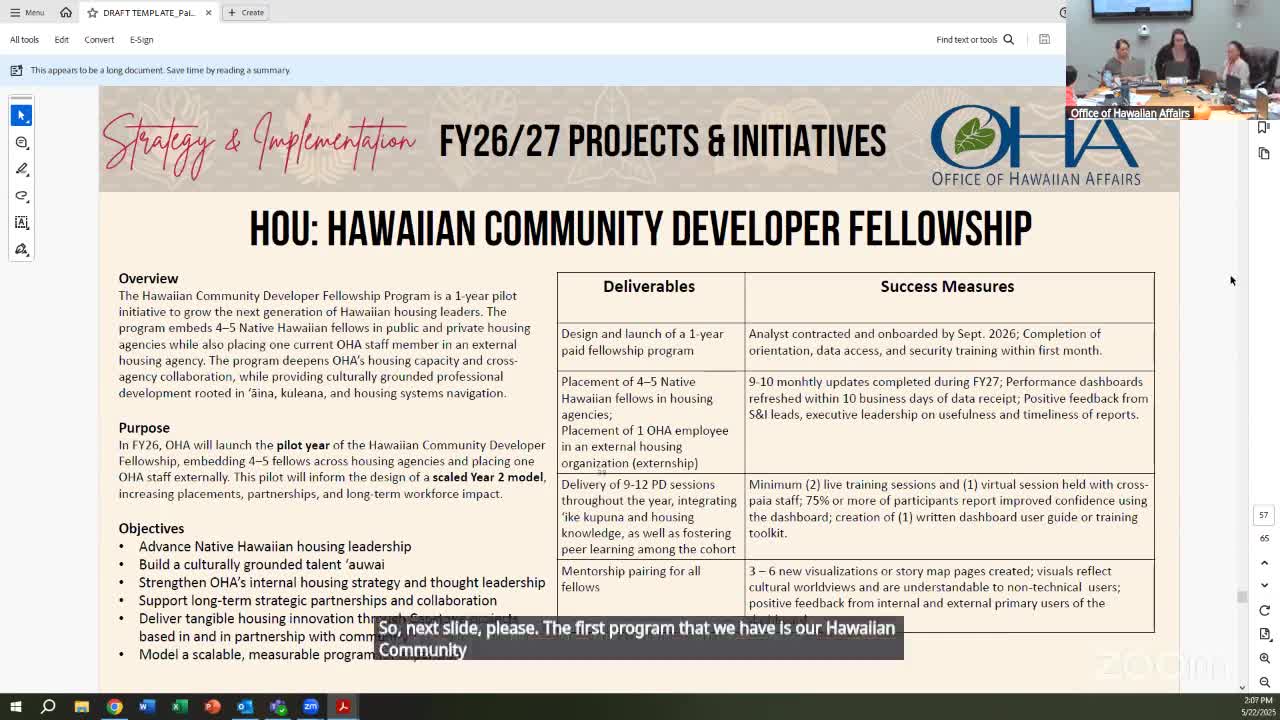
OHA proposes fellowship and $1 million home-repair program to preserve Native Hawaiian homeownership
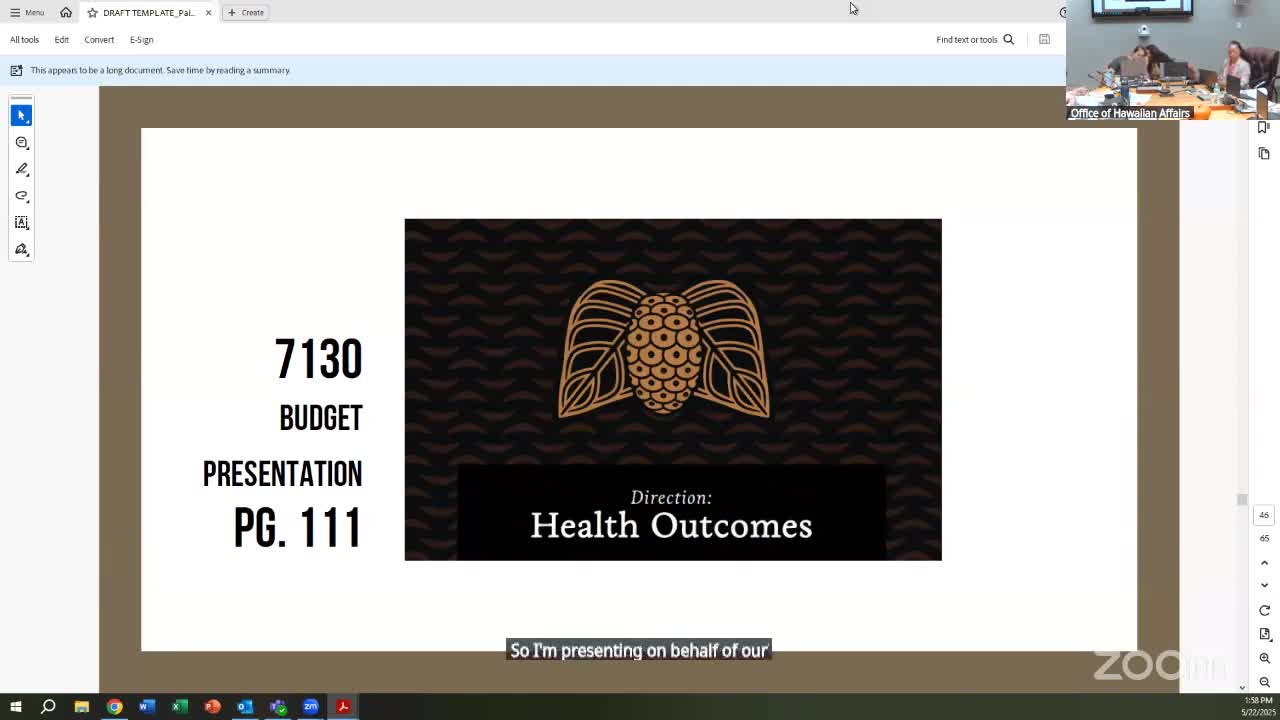
OHA proposes specialty court, restorative justice and health initiatives with combined $1.75M ask
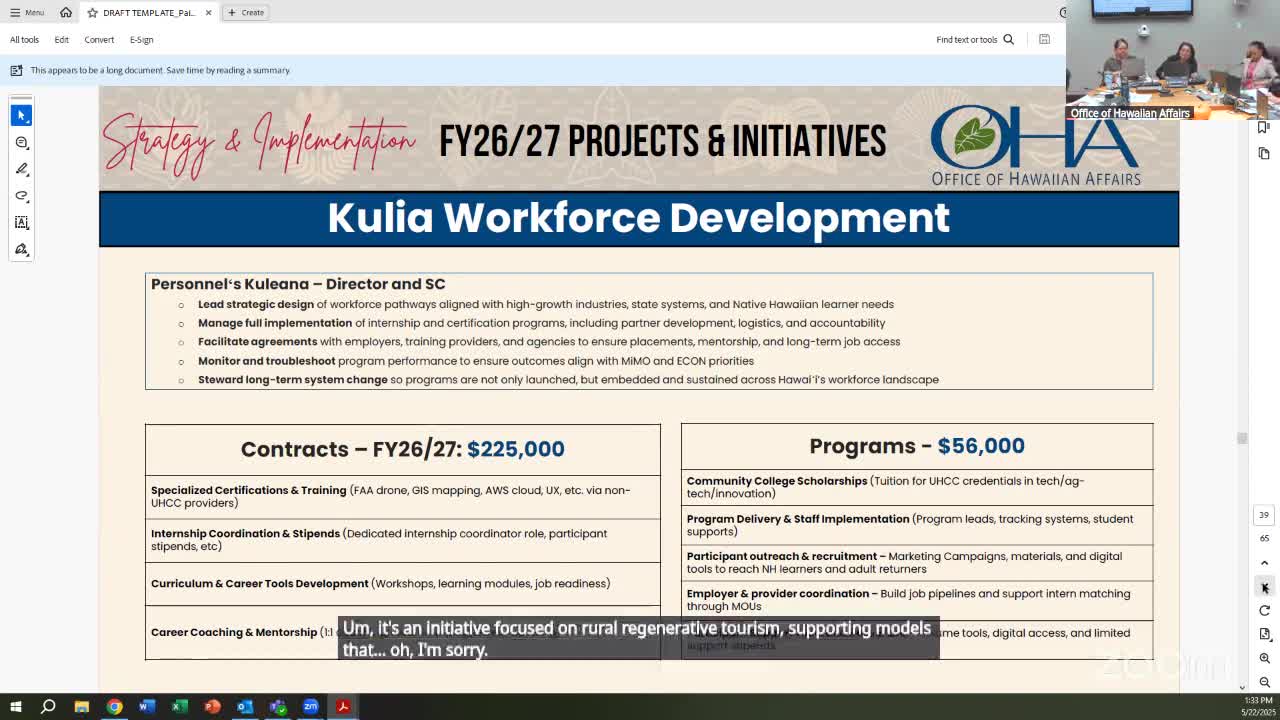
OHA requests $250,000 to pilot rural regenerative tourism and heritage trails
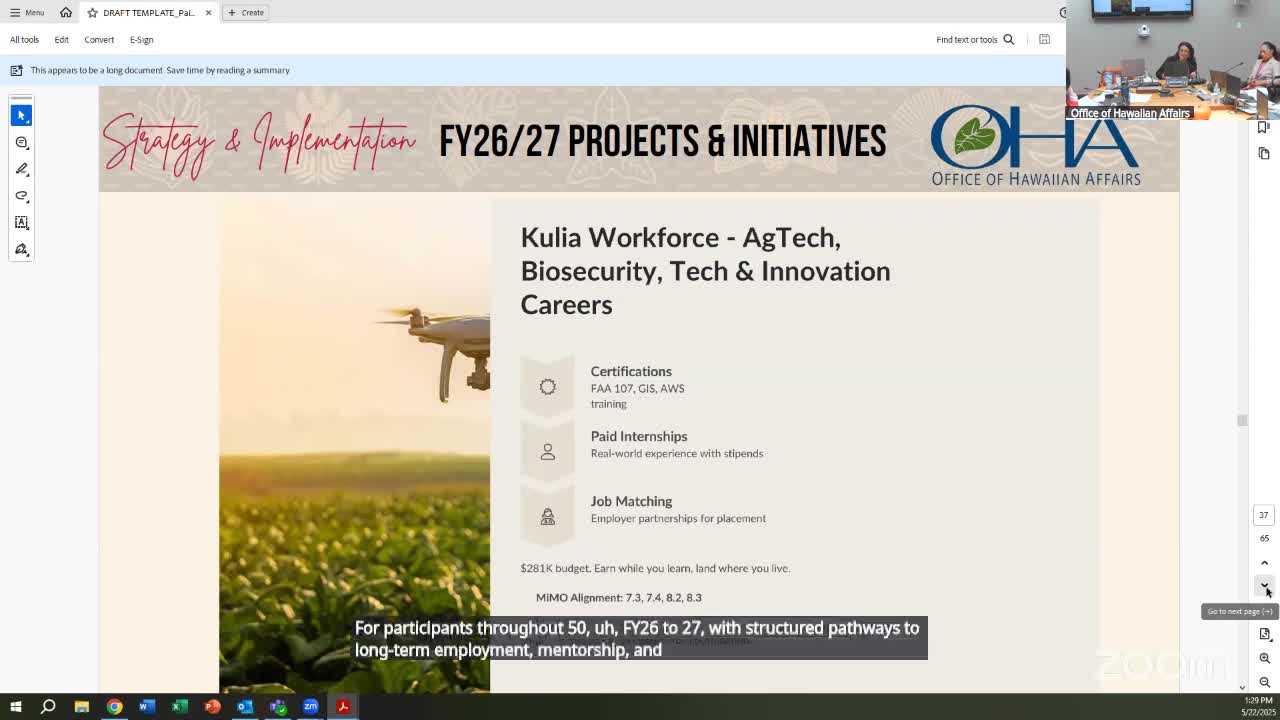
OHA seeks $281,000 for workforce cohorts to place Native Hawaiians in high-growth sectors
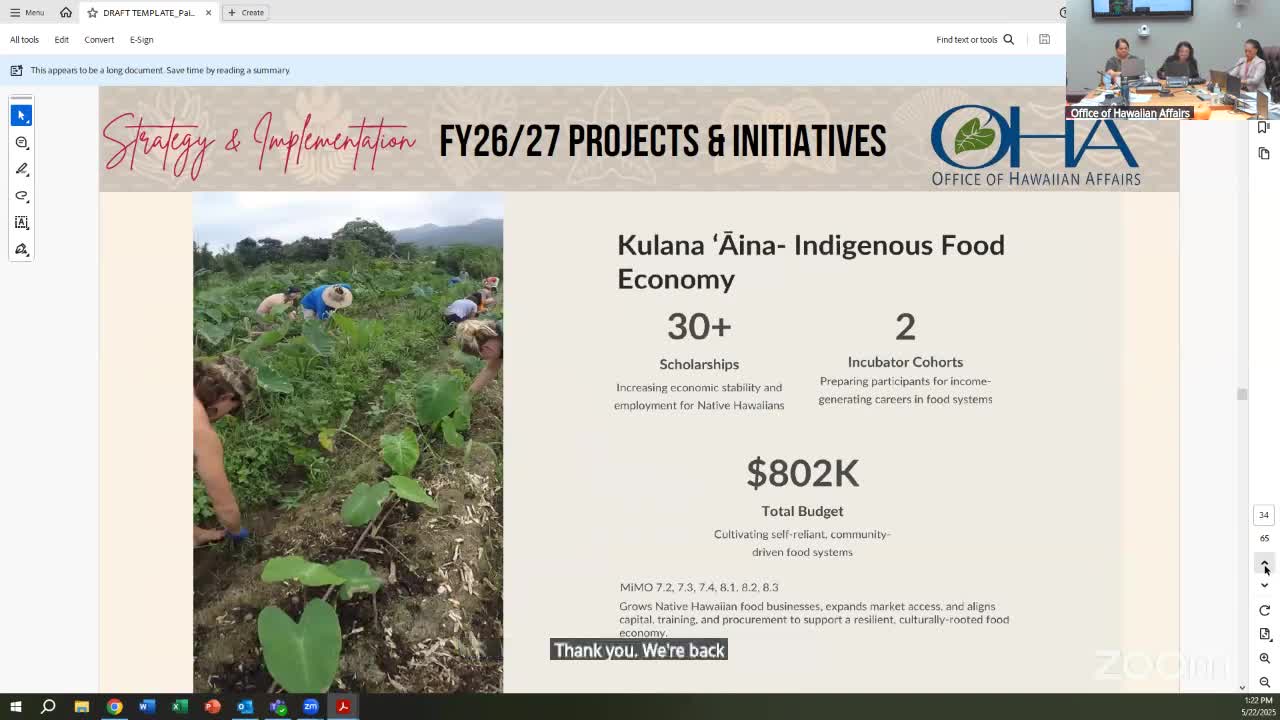
OHA proposes $802,600 to boost Native Hawaiian food producers with scholarships and incubators
